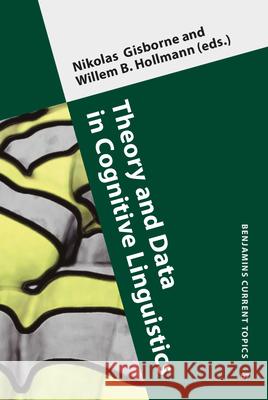Theory and Data in Cognitive Linguistics » książka
Theory and Data in Cognitive Linguistics
ISBN-13: 9789027242556 / Angielski / Twarda / 2014 / 262 str.
Cognitive linguistics has an honourable tradition of paying respect to naturally occurring language data and there have been fruitful interactions between corpus data and aspects of linguistic structure and meaning. More recently, dialect data and sociolinguistic data collection methods/theoretical concepts have started to generate interest. There has also been an increase in several kinds of experimental work. However, not all linguistic data is simply naturally occurring or derived from experiments with statistically robust samples of speakers. Other traditions, especially the generative tradition, have fruitfully used introspection and questions about the grammaticality of different strings to uncover patterns which might otherwise have gone unnoticed. The divide between generative and cognitive approaches to language is intimately connected to the kinds of data drawn on, and the way in which generalisations are derived from these data. The papers in this volume explore these issues through the lens of synchronic linguistic analysis, the study of language change, typological investigation and experimental study. Originally published in Studies in Language Vol. 36:3 (2012).











